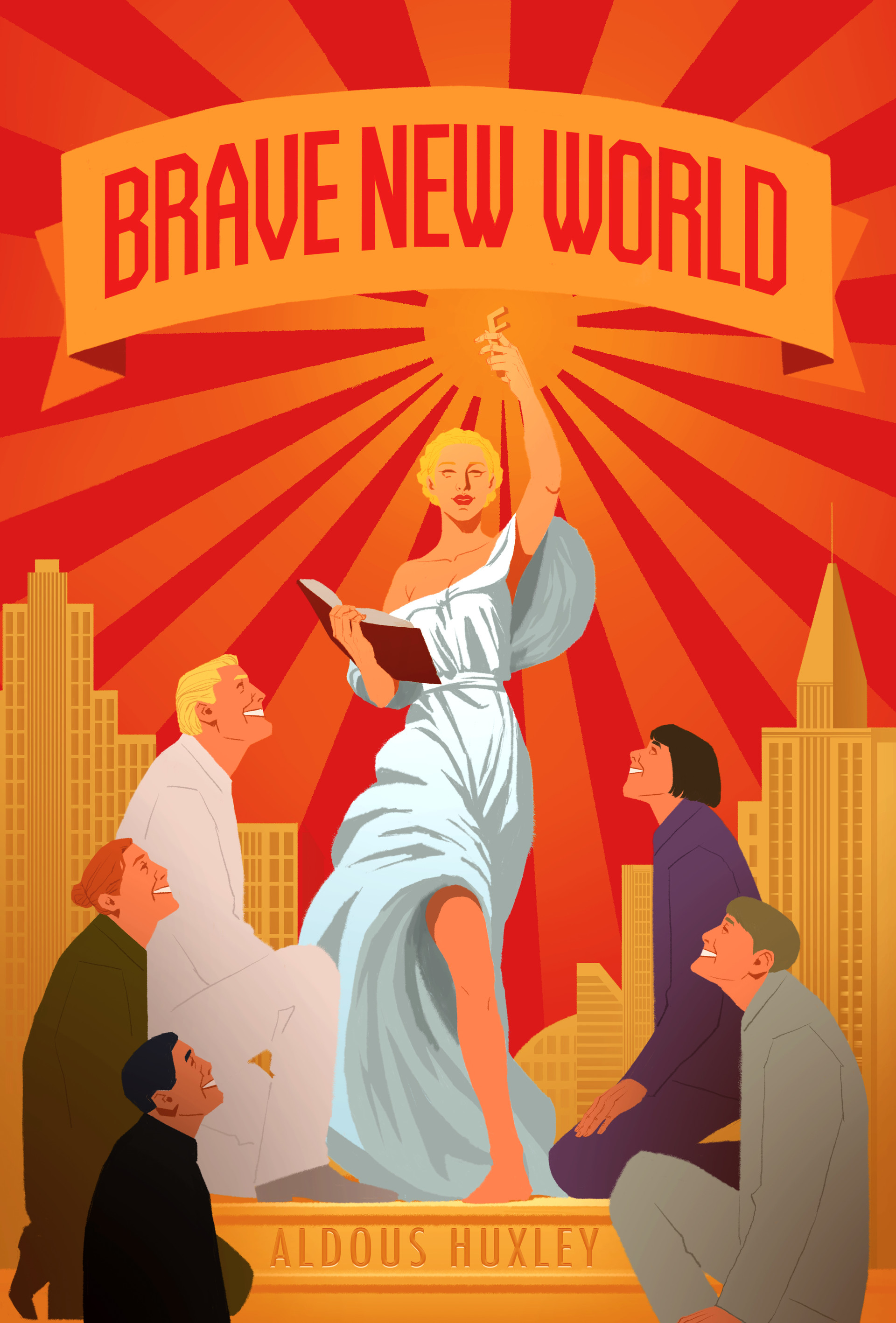

"A genius who spent his life decrying the onward march of the Machine" ( The New Yorker ), Huxley was a man of incomparable talents: equally an artist, a spiritual seeker, and one of history's keenest observers of human nature and civilization.īrave New World, his masterpiece, has enthralled and terrified millions of readers, and retains its urgent relevance to this day as both a warning to be heeded as we head into tomorrow and as a thought-provoking, satisfying work of literature. Wall Street JournalĪldous Huxley's profoundly important classic of world literature, Brave New World is a searching vision of an unequal, technologically-advanced future where humans are genetically bred, socially indoctrinated, and pharmaceutically anesthetized to passively uphold an authoritarian ruling order-all at the cost of our freedom, full humanity, and perhaps also our souls. One of the most prophetic dystopian works. Huxley died in California on 22 November 1963.Now more than ever: Aldous Huxley's enduring masterwork must be read and understood by anyone concerned with preserving the human spiritĪ masterpiece. His beliefs found expression in both fiction ( Time Must Have a Stop,1944, and Island, 1962) and non-fiction ( The Perennial Philosophy, 1945 Grey Eminence, 1941 and the account of his first mescaline experience, The Doors of Perception, 1954). The exploration of the inner life through mysticism and hallucinogenic drugs was to dominate his work for the rest of his life.


As the West braced itself for war, Huxley came increasingly to believe that the key to solving the world's problems lay in changing the individual through mystical enlightenment. In 1937, at the height of his fame, Huxley left Europe to live in California, working for a time as a screenwriter in Hollywood. The great novels of ideas, including his most famous work Brave New World (published in 1932, this warned against the dehumanising aspects of scientific and material 'progress') and the pacifist novel Eyeless in Gaza (1936) were accompanied by a series of wise and brilliant essays, collected in volume form under titles such as Music at Night (1931) and Ends and Means (1937). For most of the 1920s Huxley lived in Italy and an account of his experiences there can be found in Along the Road (1925).

This was swiftly followed by Antic Hay (1923), Those Barren Leaves (1925) and Point Counter Point (1928) – bright, brilliant satires in which Huxley wittily but ruthlessly passed judgement on the shortcomings of contemporary society. He began writing poetry and short stories in his early 20s, but it was his first novel, Crome Yellow (1921), which established his literary reputation. Aldous Huxley was born on 26 July 1894 near Godalming, Surrey.


 0 kommentar(er)
0 kommentar(er)
